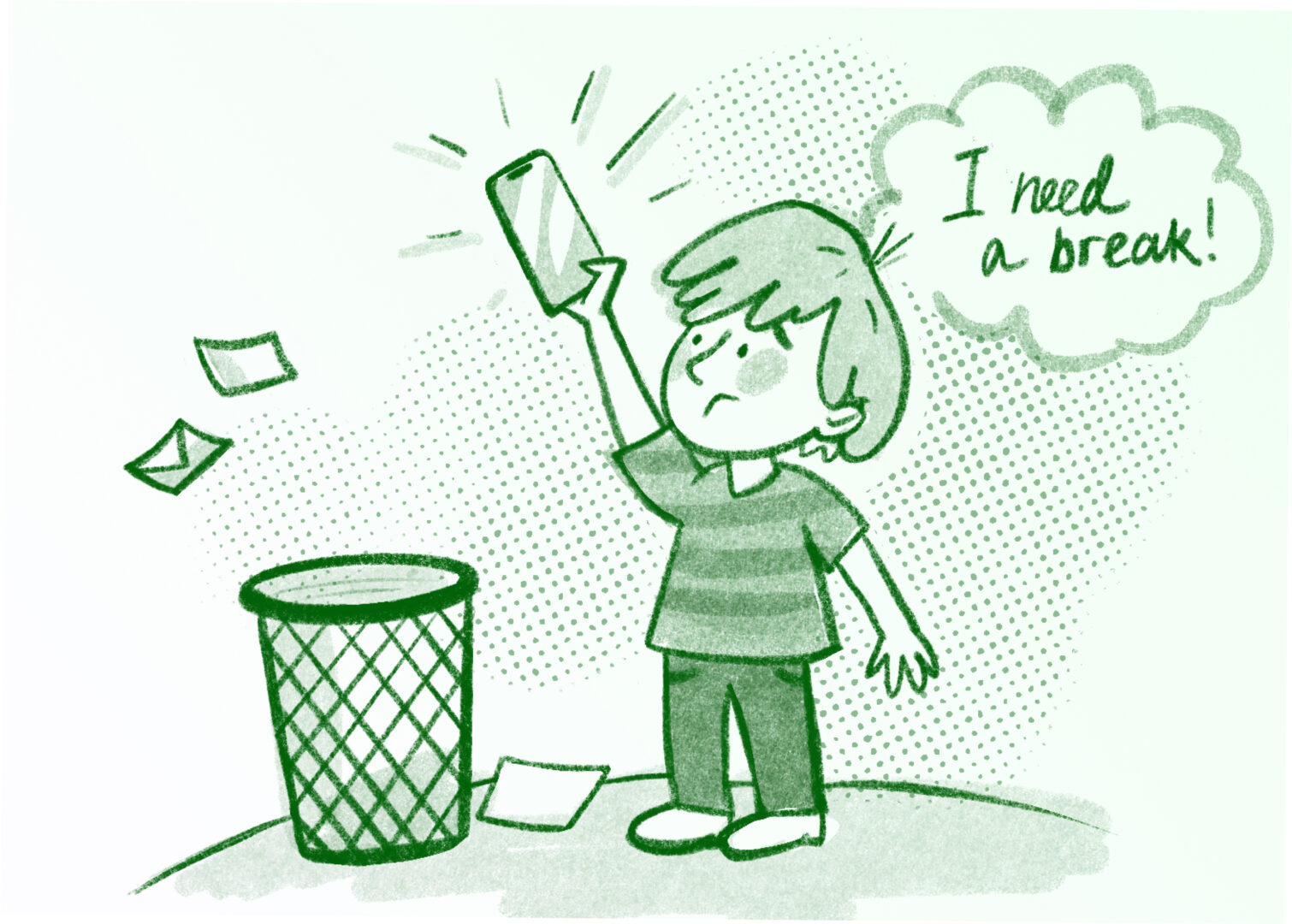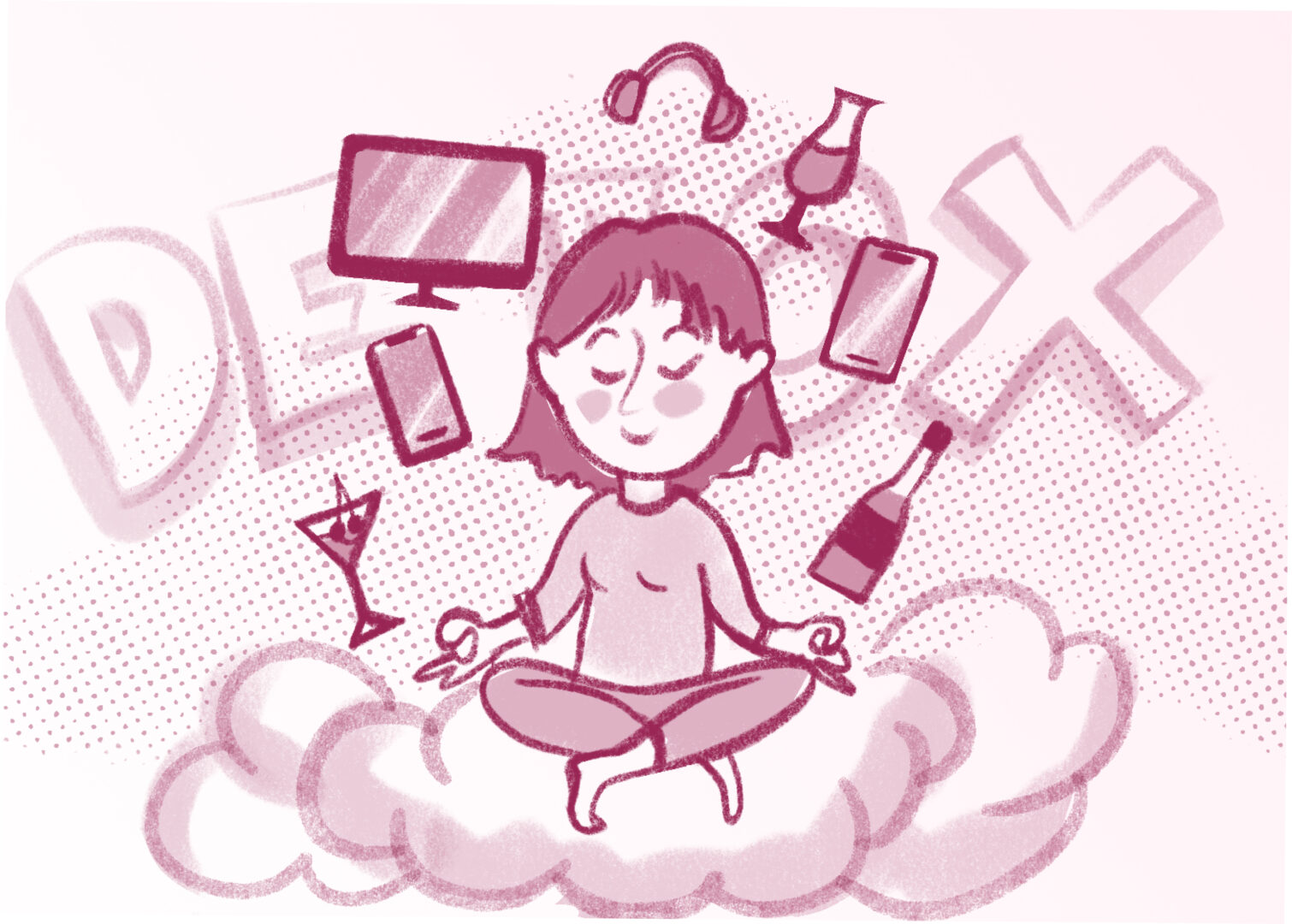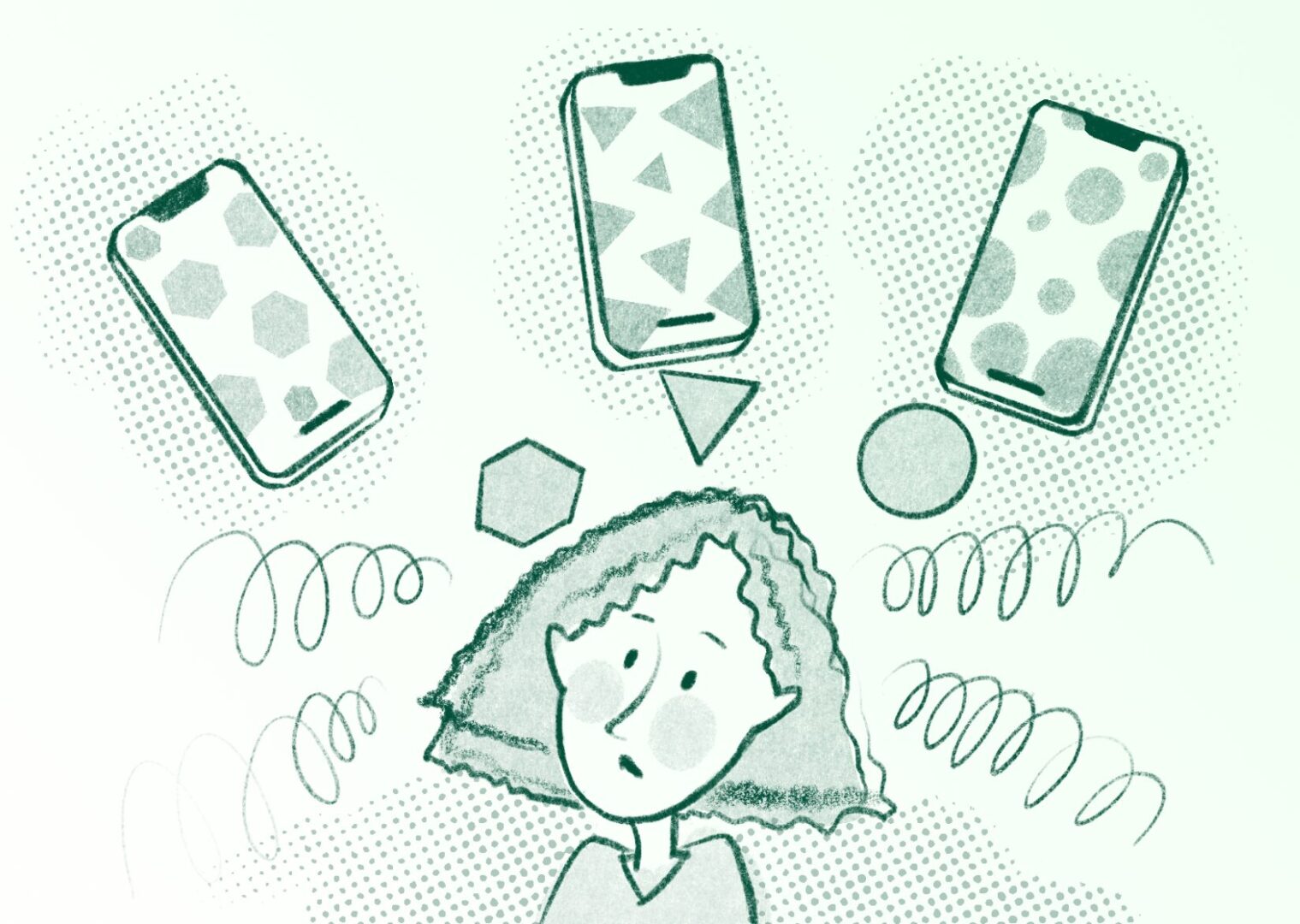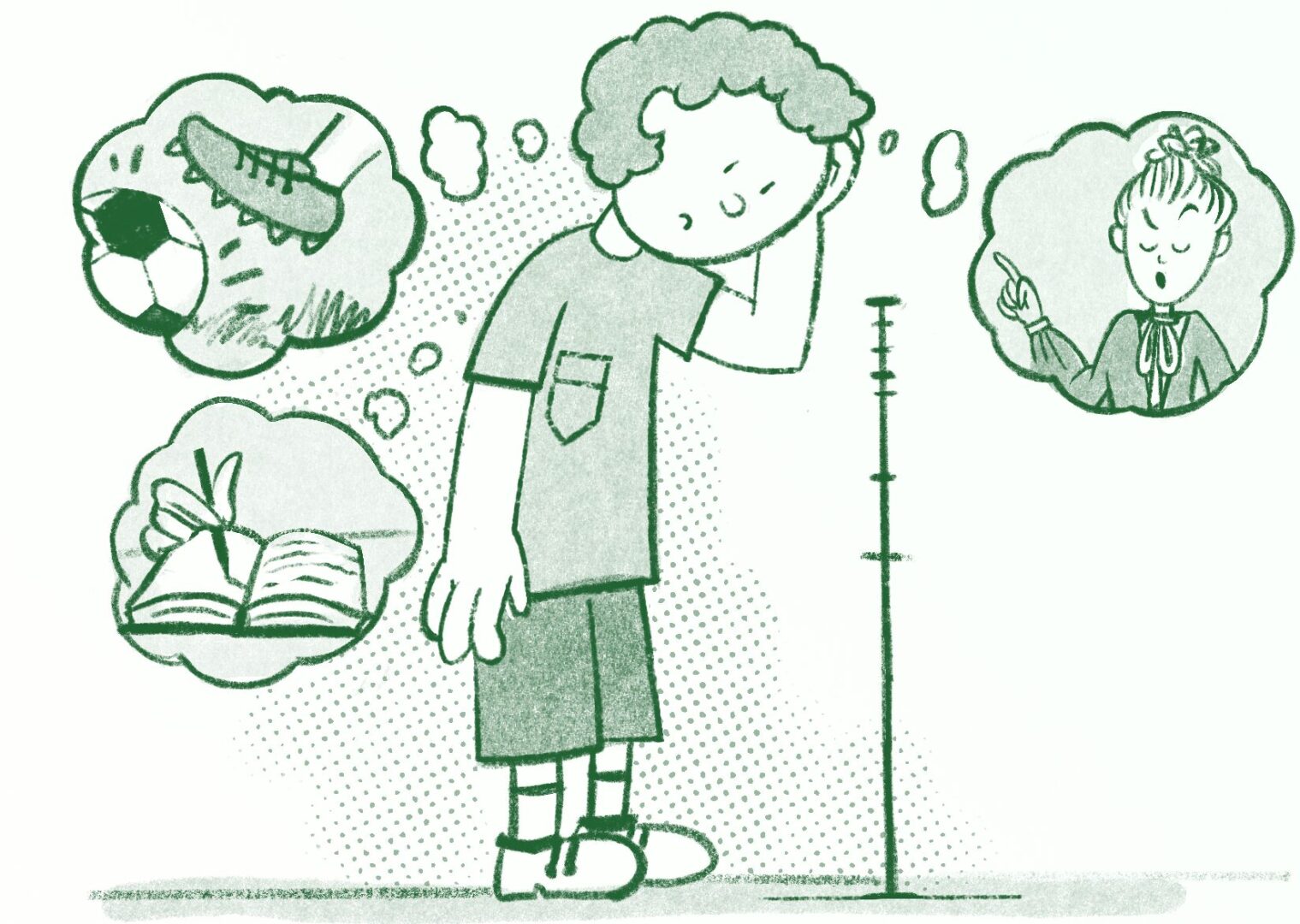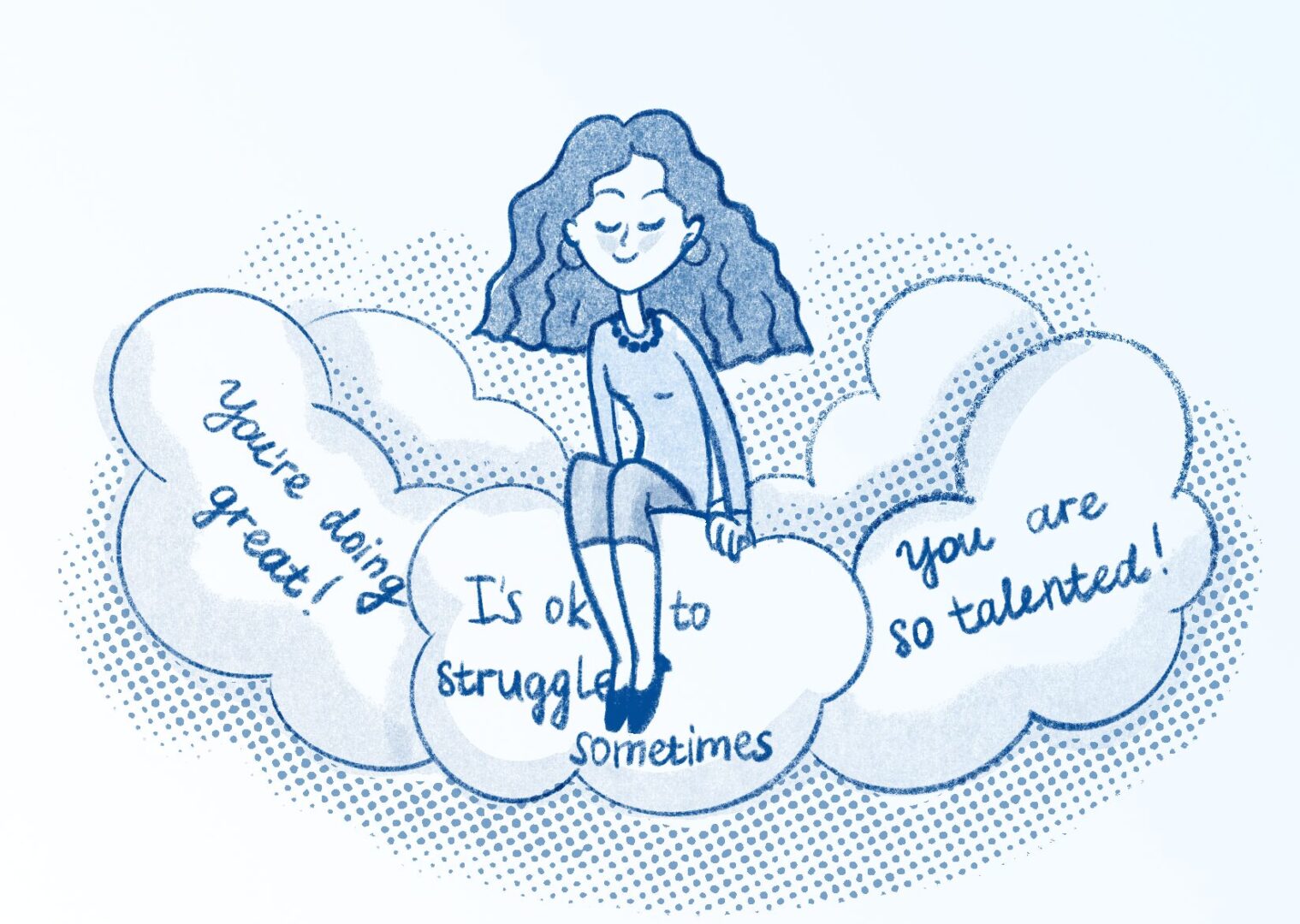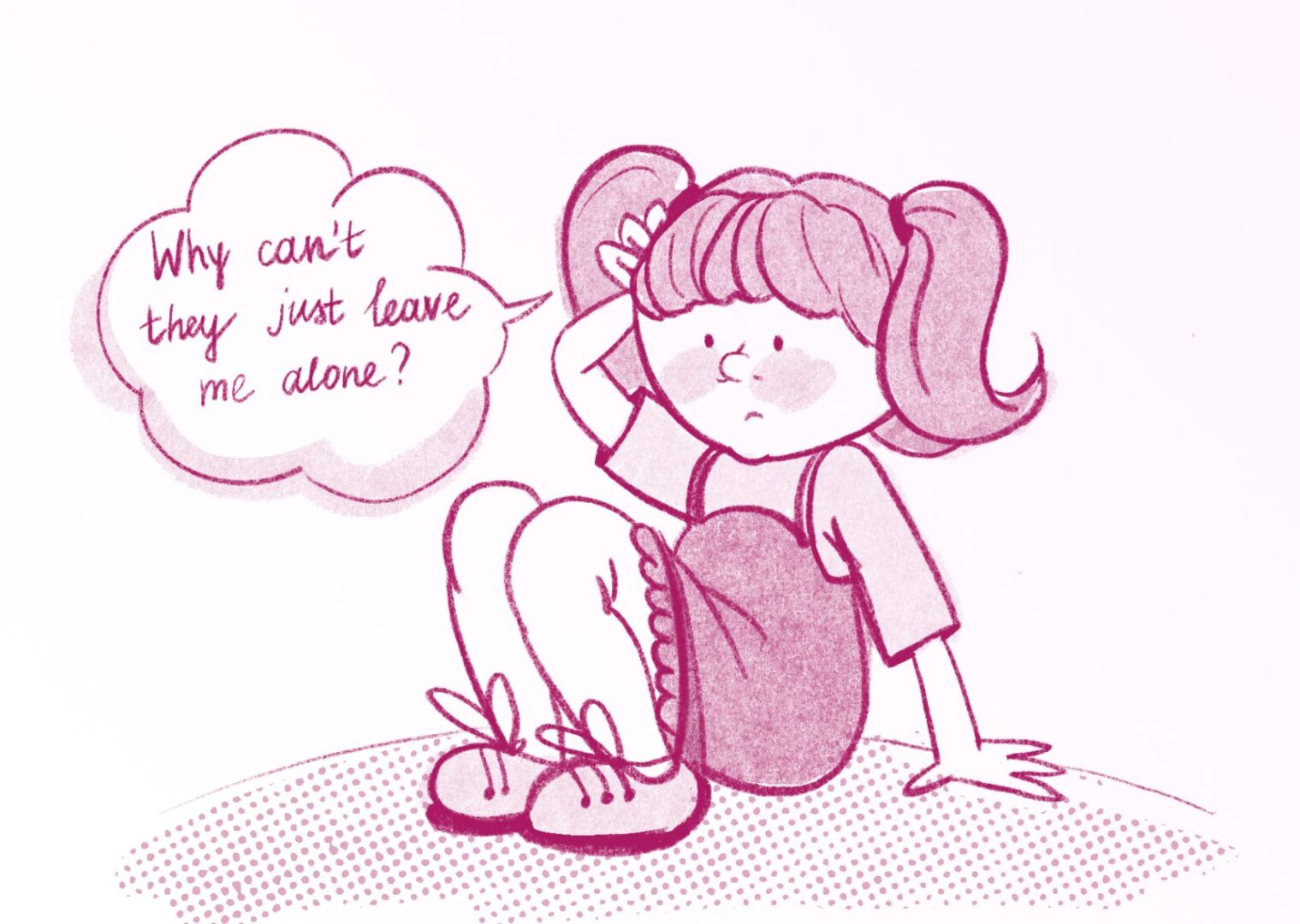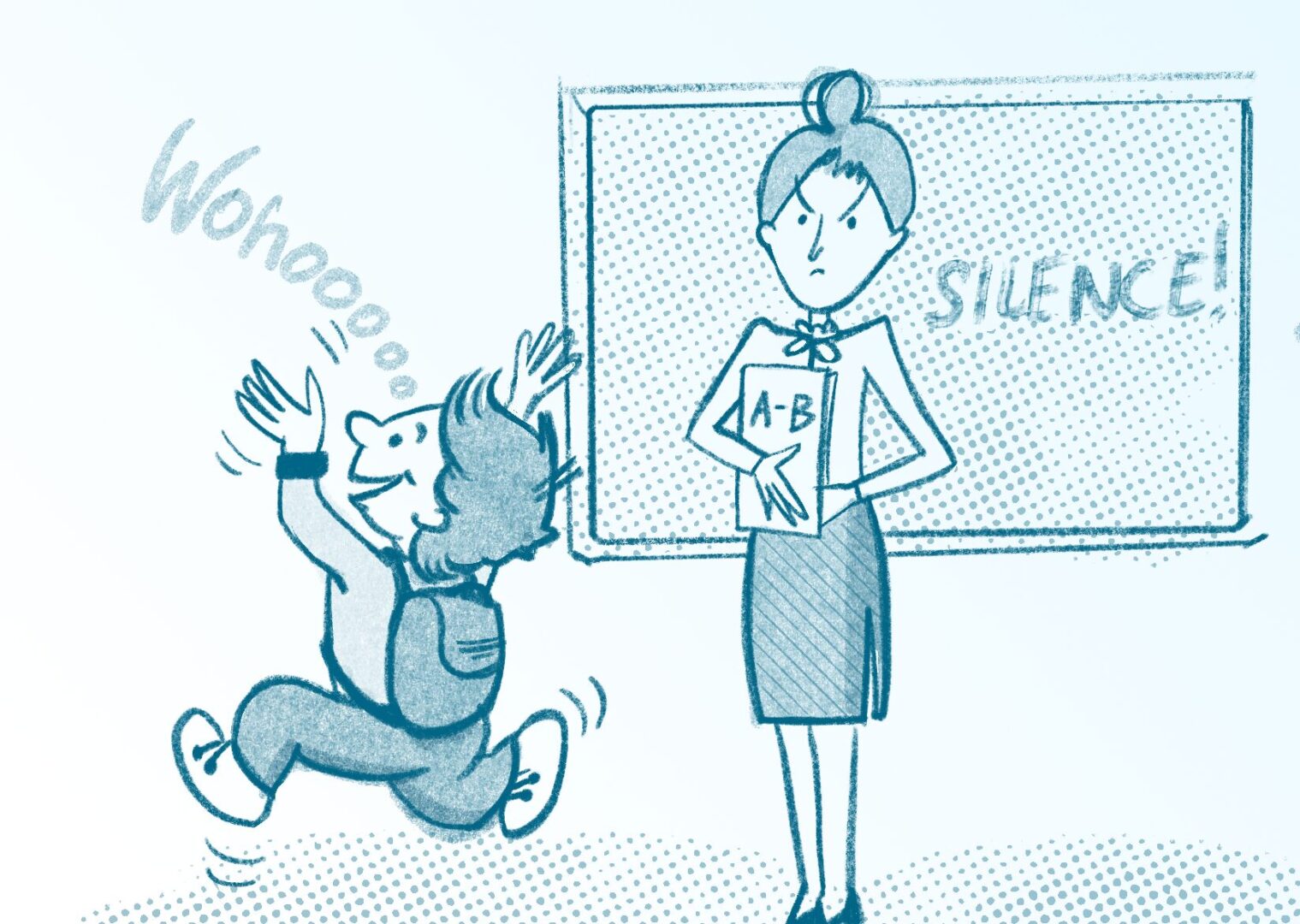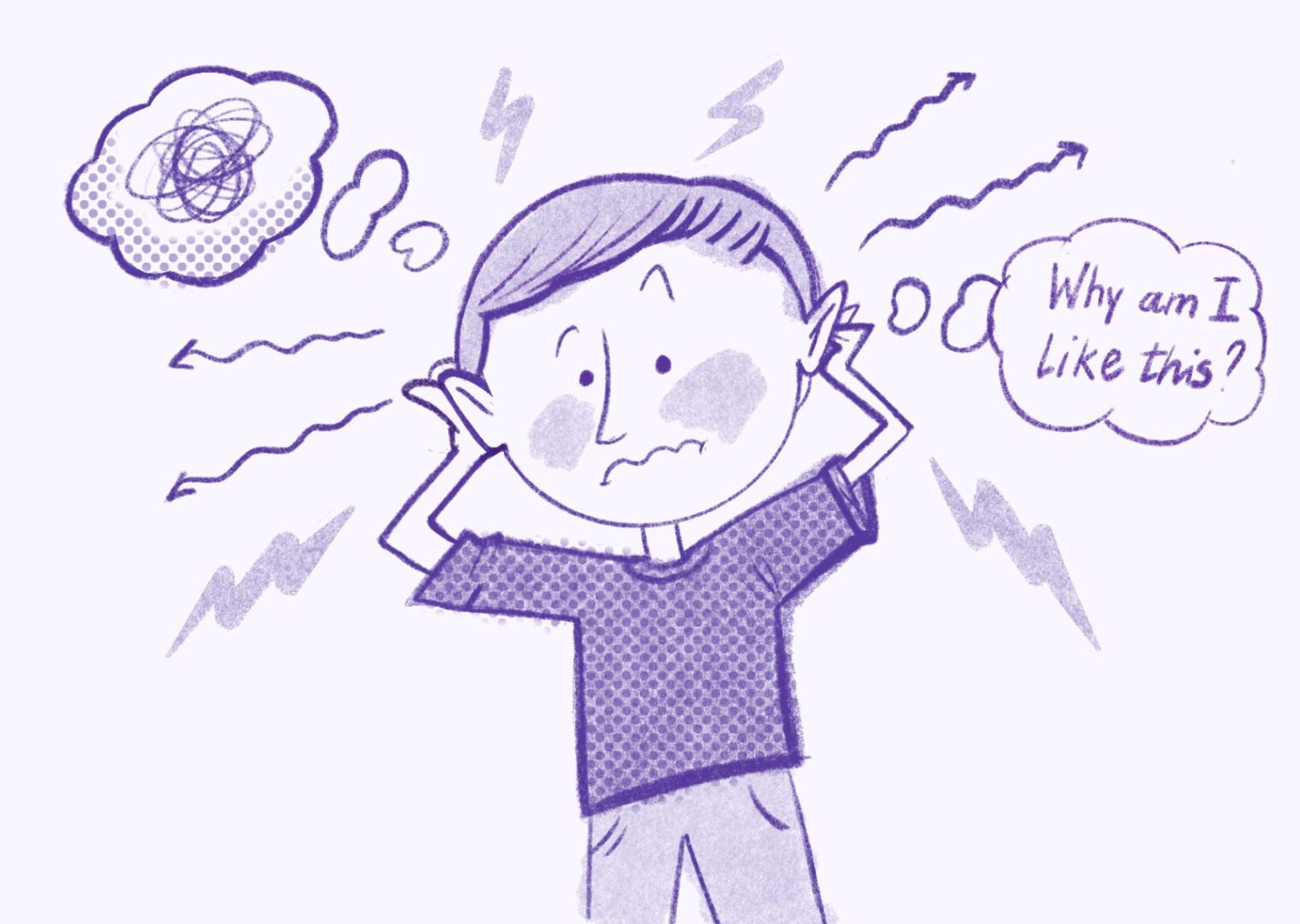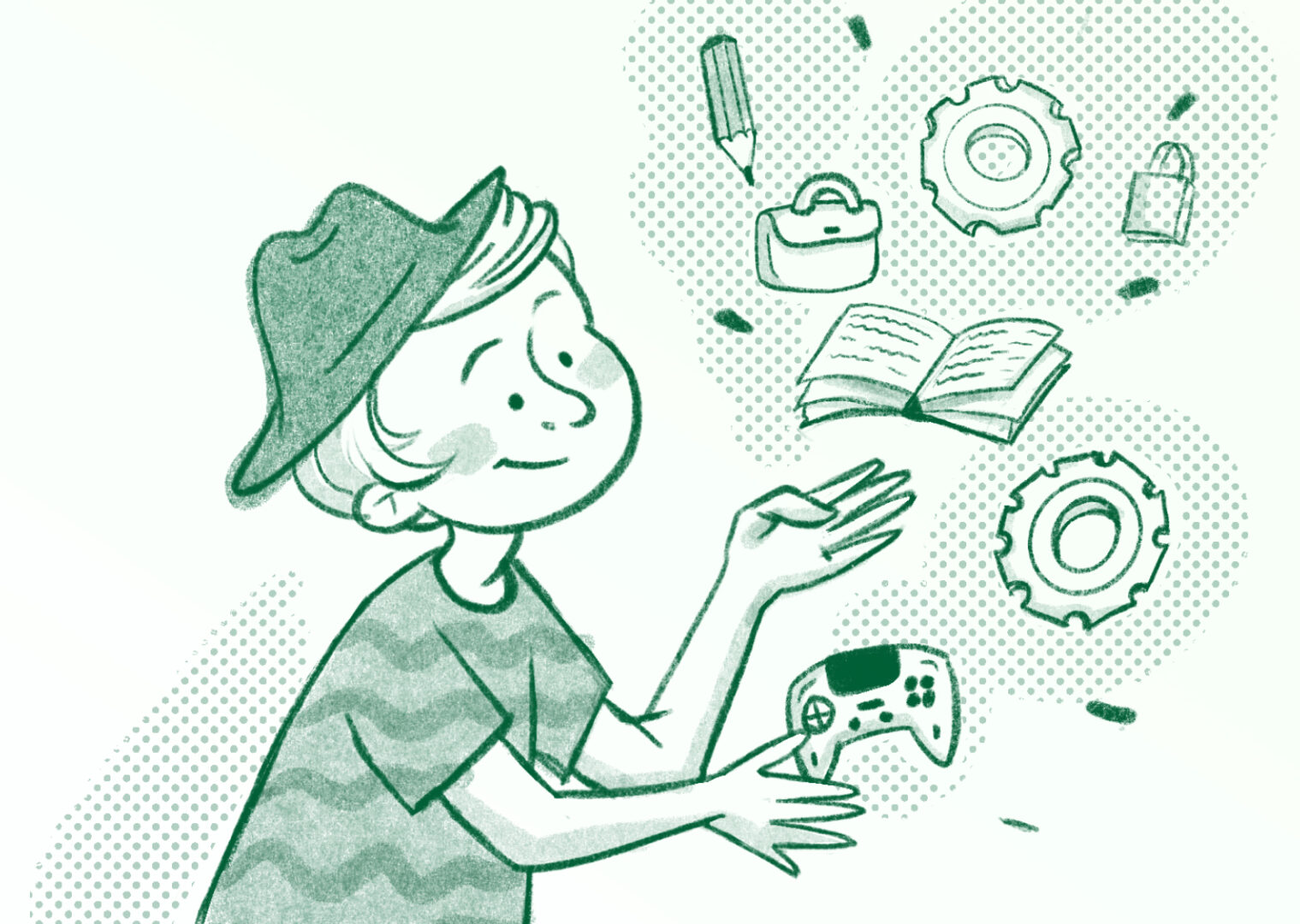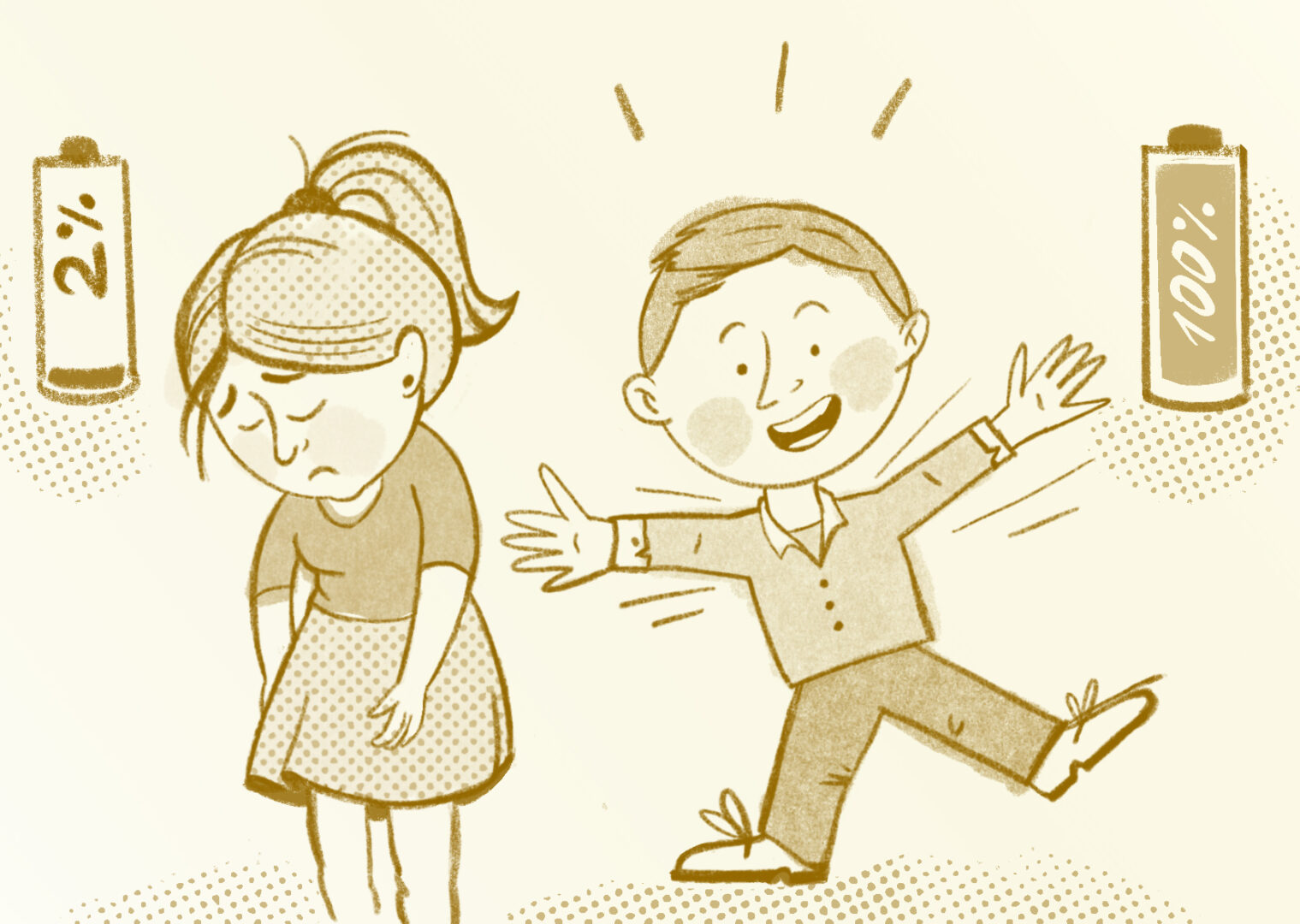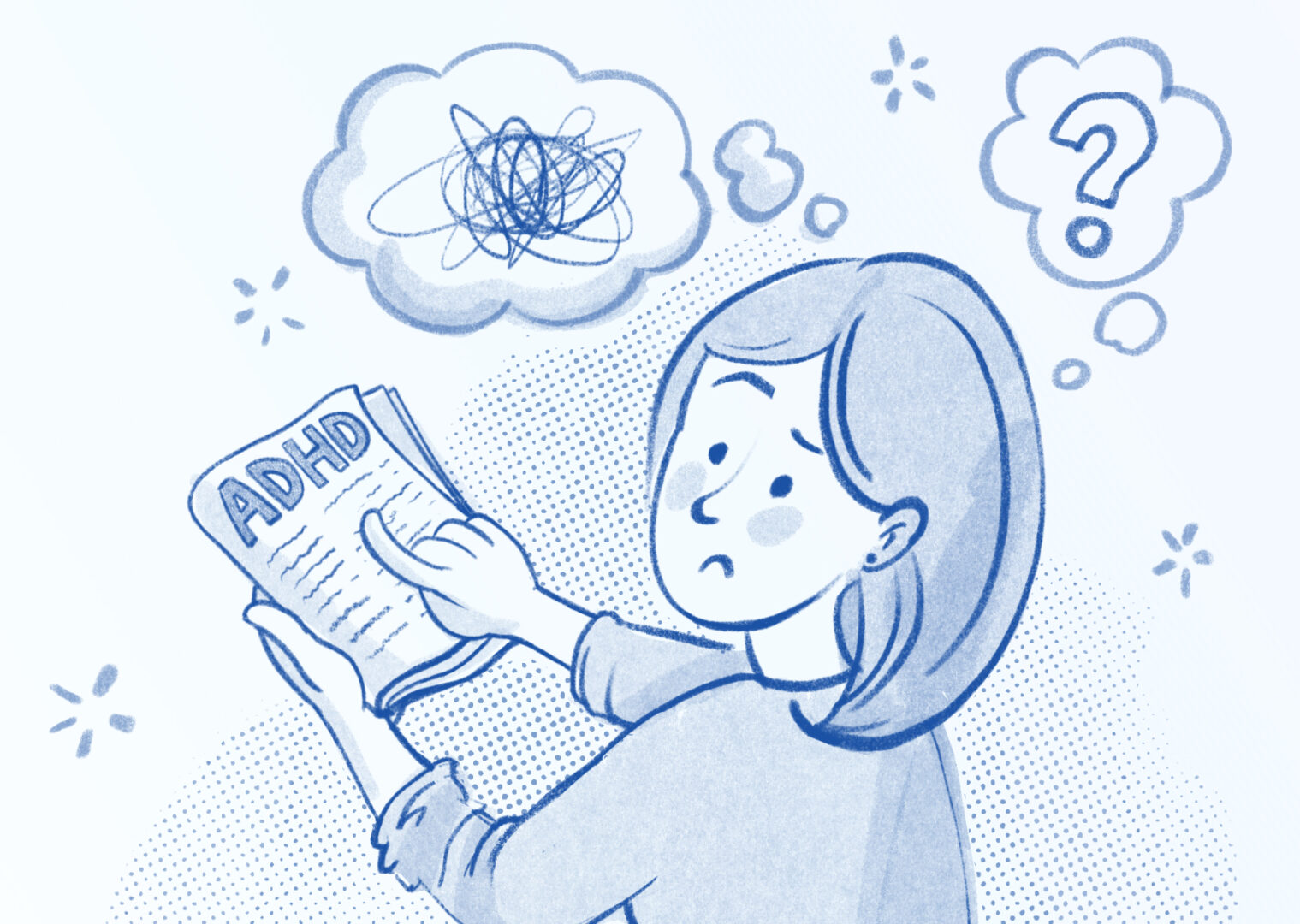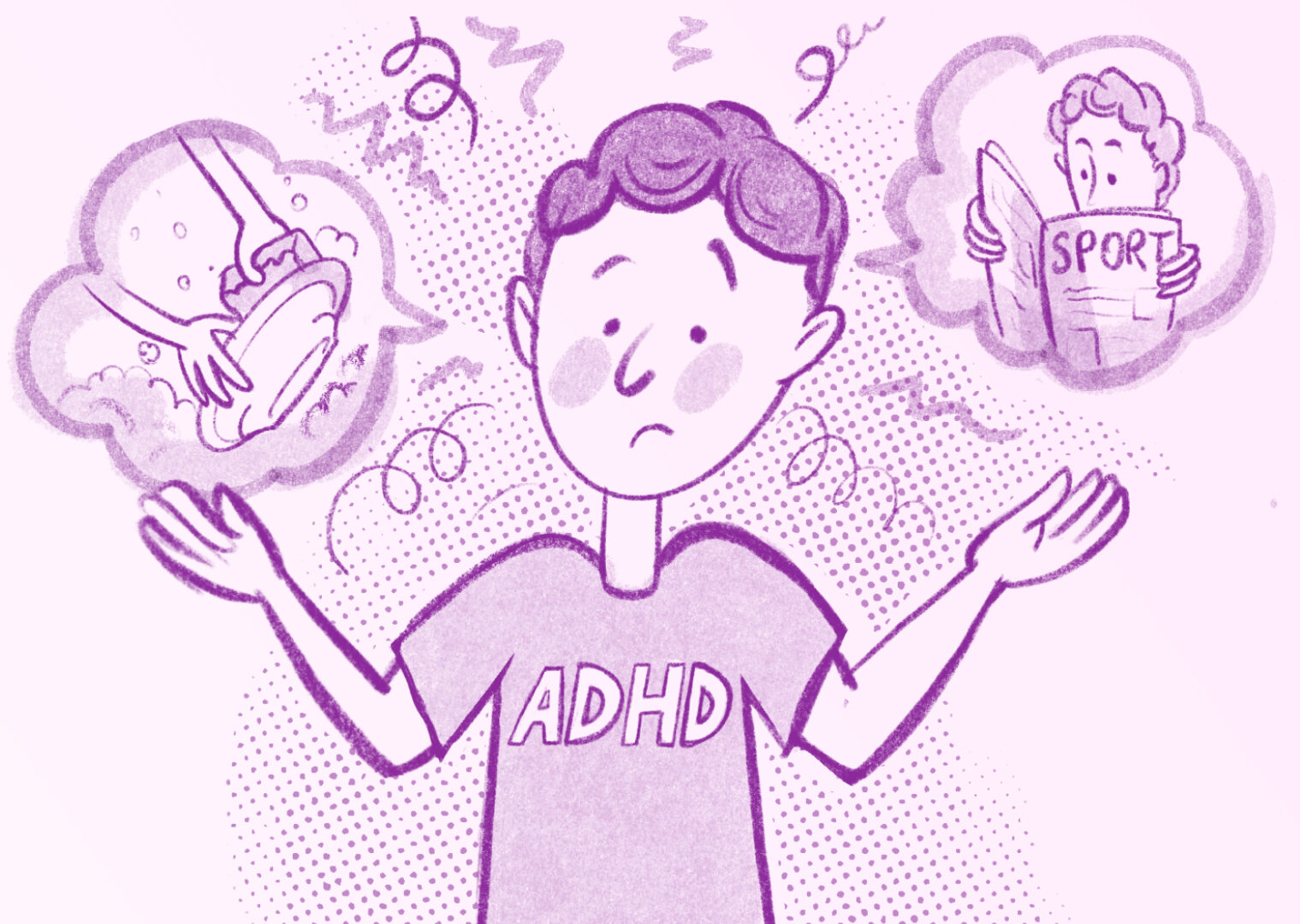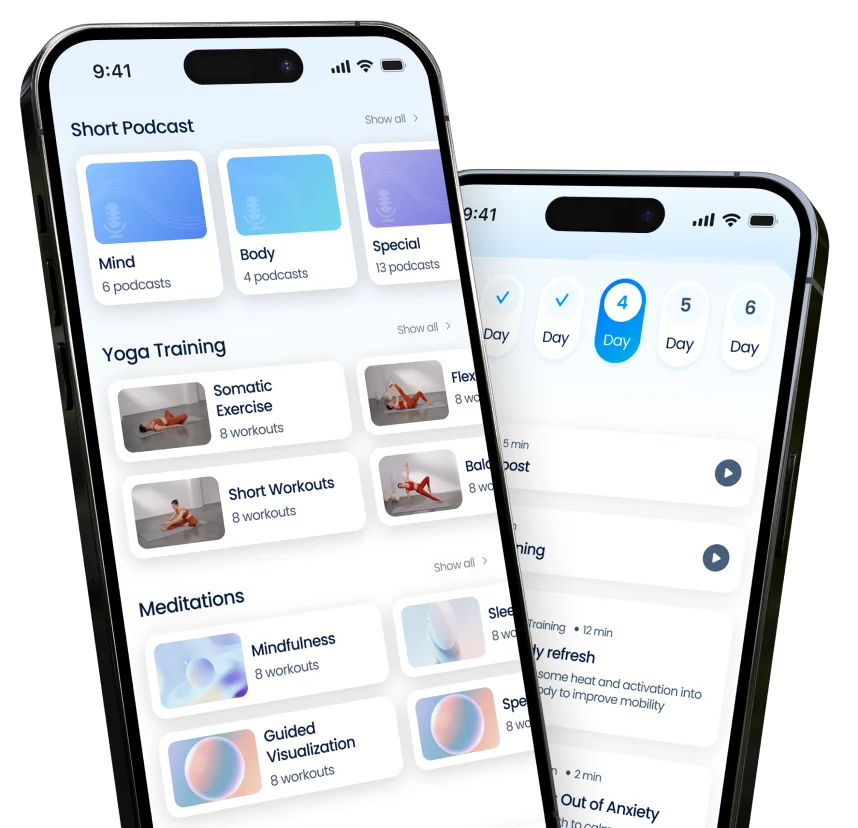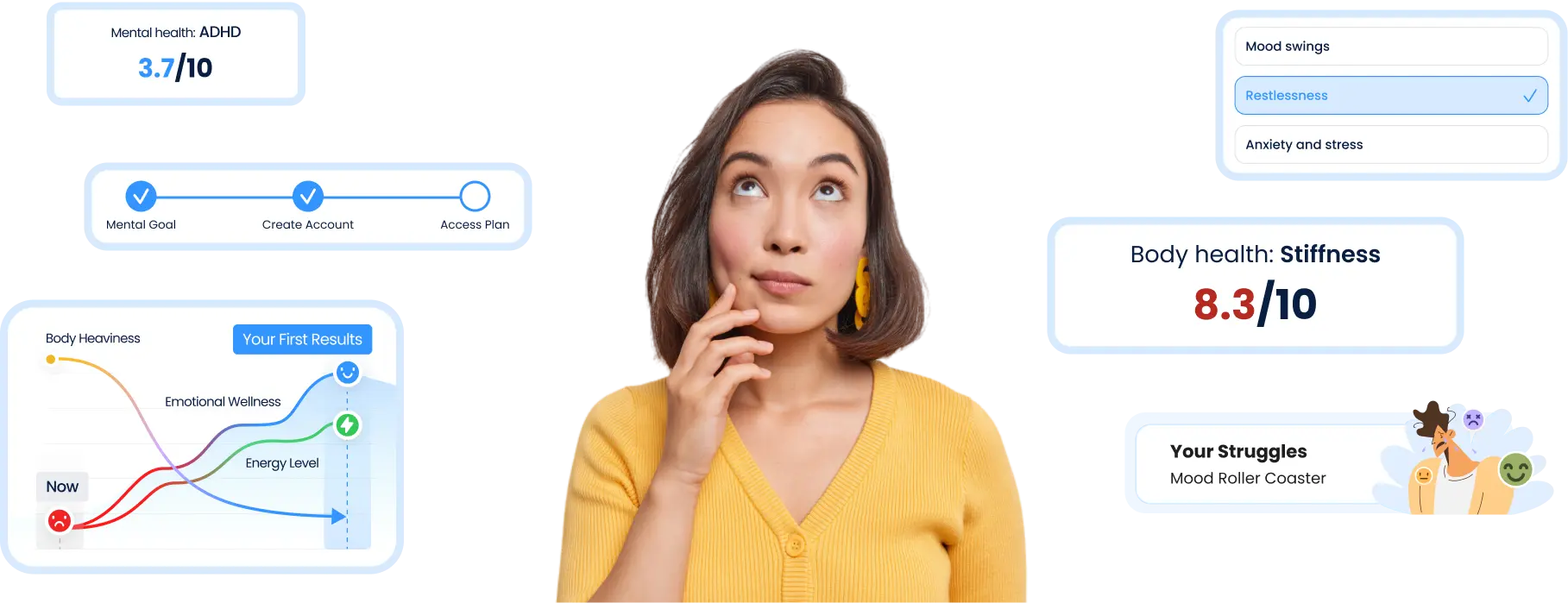Your ultimate program
with all the natural relief solutions-structured, easy to follow, and filled with joy
Understanding Attention Deficit Hyperactivity Disorder
ADHD is a congenital neurodevelopmental disorder, the first symptoms of which are revealed before the age of 12. Its common symptoms include lack of focus, disorganization, and hyperactivity, which can lead to brain fog, mood swings, anxiety, and depression.
Traditional ADHD treatment reconsidered
Just until recently, ADHD used to be treated solely with stimulant and non-stimulant drugs. They target various neurotransmitters in the brain and make them function in a “normal” way. However, those drugs have many side effects: sleep and heart disorders, depression, problems with appetite, etc. This is why their use is advised to be restricted while treatment is supplemented by natural remedies.
Science speaks:
natural ways to achieve ADHD relief

Meditation and mindfulness
Studies from the World Journal of Psychiatry have shown meditation to be an effective treatment for ADHD symptoms: it led to a 30-81.8% reduction in inattentiveness and hyperactivity. The problem with ADHD brains lies in their inability to effortfully concentrate and inhibit impulses. Meditations teach the brain how to focus on the present moment and the current feelings and thoughts to rewire the brain. The research from Harvard University found that the more we distract from current activity, the less happy we feel, which makes mindfulness and meditation even more beneficial.

Physical activity
Similarly to drugs, vigorous exercise serves as a natural booster of neurotransmitters, leading to improved impulse control and overall mental health. The research proved that physical activities lead to a considerable increase in dopamine levels, so they can be used as one of the mental health treatment methods. Moreover, another study has shown that even an hour-long moderate-level sports session led to the alleviation of ADHD symptoms among adolescents.

Cognitive-behavioral therapy (CBT)
CBT can help ADHDers identify and modify unhealthy thought patterns and behaviors. CBT sessions involve developing a set of strategies for managing symptoms and improving daily functioning. Some of them include restructuring depressive beliefs about oneself and preventing panic and anxiety attacks.

Structured routine
A structured daily routine helps ADHDers feel more in control and reduces feelings of anxiety and stress. Establishing a daily schedule, setting reminders, and breaking tasks into smaller steps can help improve productivity and enhance one’s self-confidence, which ADHD people often lack due to societal pressure.

EEG biofeedback or neurofeedback
EEG biofeedback, or neurofeedback, is a type of neurotherapy that shows its effectiveness in increased academic achievements, intelligence tests, and improved attention and behavioral control. It works like this: You’re given a task to watch, for example, a dot on a computer screen, while special electrodes are put on your head to analyze your brain impulses. When your attention and brain activity change, the dot on the screen starts to behave differently, and so, in the form of a game, you learn how to control your brain activity consciously.

Omega 3–6 and iron
A balanced diet rich in omega-3 and omega-6 fatty acids has a positive effect on ADHD symptoms. 13 out of 16 studies revealed that those who supplemented their diet with Omega-3-6 improved their short- and long-term memory, impulsivity, and attention. Iron deficiency is often associated with ADHD and emotional and behavioral problems in children. Some studies suggest that taking iron supplements can be one way to treat ADHD naturally. But pay attention to the fact that, just as with all vitamins, iron must be prescribed by a doctor.

Healthy sleep patterns
Maintaining healthy sleep patterns is essential for individuals with ADHD, as sleep disturbances can make symptoms much worse. It may sound trite, but establishing a consistent sleep schedule, creating a relaxing bedtime routine, and avoiding screens before bedtime can significantly improve sleep quality.
FAQ
1. Is untreated attention deficit hyperactivity disorder dangerous?
2. Is treating ADHD possible?
3. Can adults develop ADHD symptoms?







